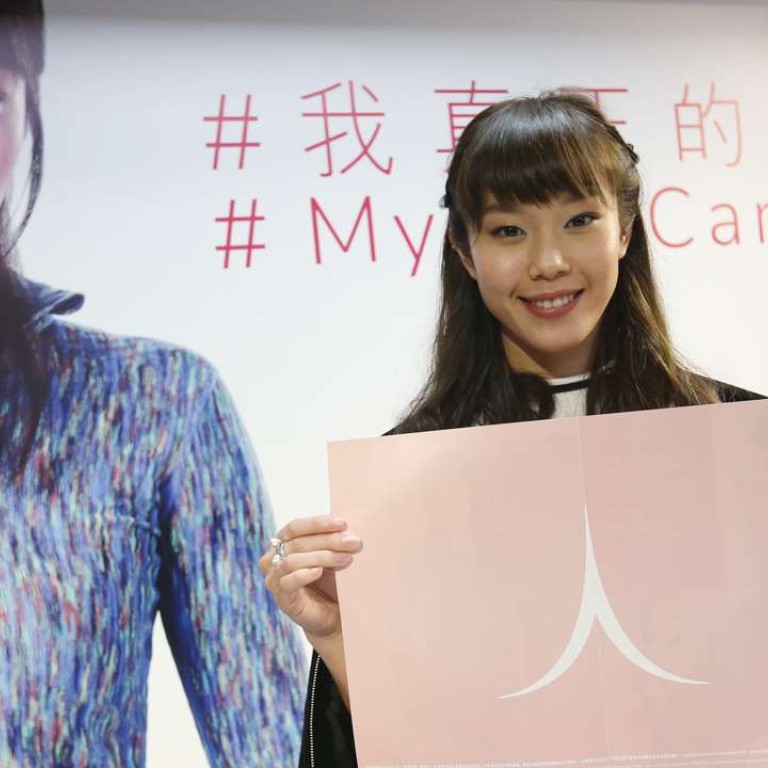
Hongkongers call for an end to sexism in the workplace with video campaign on International Women’s Day
More than 20 per cent of men think Cantonese term equating a woman’s cleavage to her career progression is positive, according to survey
Almost two-thirds of Hong Kong women feel discriminated against based on their looks, according to a new survey released on International Women’s Day on Wednesday.
Olympic swimmer Stephanie Au Hoi-shun and former chief secretary Anson Chan Fang On-sang were among a number of well-known Hongkongers to throw their support behind The Woman Foundation’s My Real Career Line video campaign, calling for people to take a stand against workplace sexism.
The foundation’s survey of 1,000 people found 62 per cent of women feel discriminated against based on looks, while a quarter of men aged 31 to 49 believe a women’s success is based on her physical appearance.
More than 40 per cent of women thought the Cantonese term “career line”, which equates a woman’s cleavage to her career progression, was offensive. About 20 per cent of men aged under 30, however, thought it was positive. In total, almost 18 per cent of respondents had heard the term in a professional conversation.
Au, dubbed “Oriental Venus” by Chinese-language media for her good looks, urged young girls to remember that their drive and passion was more important than their appearance.
In a video supporting the campaign, Chan said success depends on “your convictions, on your integrity, your honesty, empathy, compassion and ability”. “In other words, it does not depend on your curves or lack of curves,” she said, tearing a sheet of paper depicting a stylised cleavage.
The foundation’s chief executive Su-Mei Thompson urged employers to reduce sexism in the workplace.
“We hope employers will play their part by working harder to ensure they are using objective criteria when assessing female candidates for job openings or promotions,” she said.
Chinese University of Hong Kong gender academic expert Susanne Choi Yuk-ping said gender discrimination often started with seemingly harmless terms or jokey language.
Hong Kong had the third biggest proportion of female managers in Asia last year, with 33 per cent of management positions filled by women, according to a recent survey by recruiting group Hays. The mainland recorded 35 per cent of female managers, the highest in the region.
However, chairman of the Equal Opportunities Commission professor Alfred Chan Cheung-ming, said Hong Kong was still behind other Asian centres when it came to gender equality, with statistics showing women were often subject to sexual harassment in the workplace.
He called on men to support women who were often working the equivalent of four jobs – taking care of their children, parents, and partner’s parents on top of their career – while still experiencing harassment.

